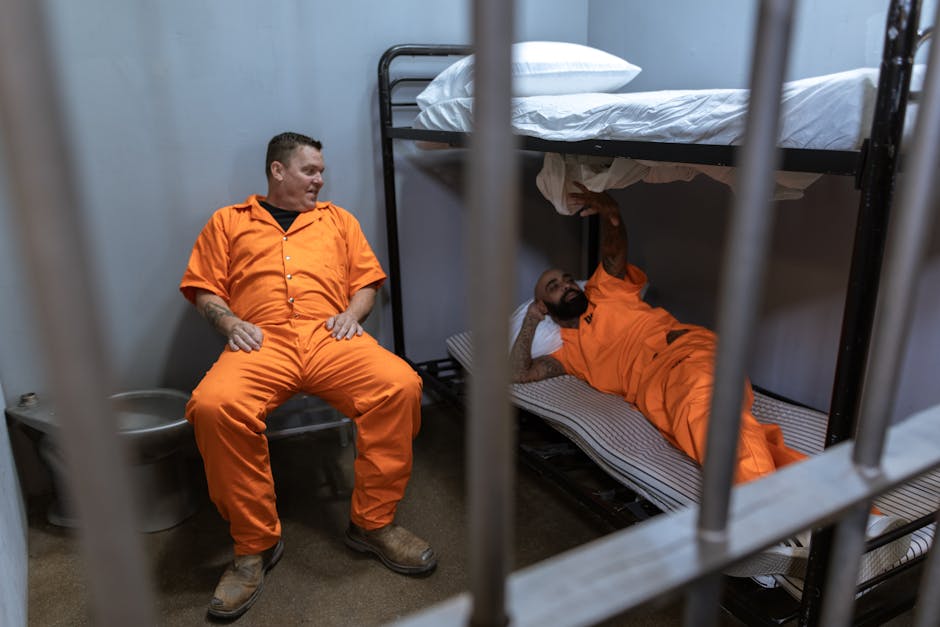10 Signs You’re Chronically Sleep-deprived (It’s Not Just Yawning) Guide
We’ve all been there: a late night, an early start, and the next day is a blur of yawns and a desperate hunt for coffee. But what if that feeling of exhaustion isn’t just an occasional hiccup? What if it’s a constant companion, subtly eroding your health, mood, and performance?

Chronic sleep deprivation is far more common – and far more insidious – than most people realize. It’s not always about pulling all-nighters; it’s often a gradual accumulation of not getting enough quality sleep over weeks, months, or even years. The problem is, our bodies are incredibly adaptable, and we can become so accustomed to feeling tired that we forget what truly being rested feels like. We attribute our symptoms to stress, aging, or just “being busy,” never linking them back to the fundamental need for adequate rest.
This guide isn’t just about the obvious signs like yawning or feeling drowsy. It delves into the often-overlooked, subtle, and sometimes surprising indicators that your body and mind are screaming for more sleep. Recognizing these 10 signs you’re chronically sleep-deprived (it’s not just yawning) is the first crucial step towards reclaiming your energy, focus, and overall well-being.
10 Signs You’re Chronically Sleep-deprived (It’s Not Just Yawning)
Let’s move beyond the obvious. If you’re experiencing several of these symptoms regularly, it’s a strong indicator that you need to prioritize your sleep.
1. Persistent Brain Fog and Difficulty Focusing
Do you often feel like your brain is wading through treacle? Struggling to concentrate on tasks that used to be easy? Chronic sleep deprivation significantly impairs your cognitive functions. Your ability to focus, pay attention, and maintain concentration takes a nosedive. Simple decisions become monumental, and your mental clarity feels constantly clouded. This isn’t just a momentary lapse; it’s a persistent state of reduced mental sharpness, making work, study, and even conversations feel like an uphill battle.
2. Increased Irritability and Mood Swings
Are you snapping at loved ones more often? Do minor annoyances feel like major catastrophes? Sleep plays a critical role in regulating our emotions. When you’re consistently sleep-deprived, your emotional control can weaken, leading to heightened irritability, impatience, and more frequent mood swings. You might find yourself feeling anxious, stressed, or even depressed without a clear reason, as your brain struggles to process emotions effectively.
3. Constant Hunger and Weight Gain
This might surprise you, but lack of sleep directly impacts your appetite and metabolism. Sleep deprivation messes with your hunger hormones: it increases ghrelin (the “hunger” hormone) and decreases leptin (the “satiety” hormone). This means you feel hungrier, crave high-calorie, sugary foods, and your body is less efficient at telling you when you’re full. Over time, this can lead to unhealthy eating habits and unexplained weight gain, despite no significant changes in your diet or activity level.
4. Weakened Immune System and Frequent Illness
Do you seem to catch every cold and flu bug going around? Sleep is essential for a robust immune system. During sleep, your body produces protective proteins called cytokines, which fight infection and inflammation. When you’re not getting enough sleep, your body produces fewer of these vital proteins, making you more susceptible to viruses and taking longer to recover from illness. It’s a vicious cycle: you get sick because you’re tired, and being sick makes it harder to get good sleep.
5. Impaired Decision-Making and Poor Judgment
From trivial choices to significant life decisions, chronic sleep deprivation can cloud your judgment. Your ability to assess risks, think critically, and make sound decisions is compromised. You might become more impulsive, take unnecessary chances, or simply struggle to weigh pros and cons effectively. This can have serious implications in your professional life, personal relationships, and even daily safety.
6. Clumsiness and Increased Accident Proneness
Bumping into things? Tripping over your own feet? Dropping objects more frequently? Lack of sleep impairs your motor skills, coordination, and reaction time. Your brain takes longer to process information and send signals to your muscles, making you more accident-prone. This isn’t just about minor mishaps; it significantly increases the risk of serious accidents, especially when driving or operating machinery.
7. Skin Issues: Dark Circles, Dull Complexion, Breakouts
They don’t call it “beauty sleep” for nothing! Chronic sleep deprivation manifests on your face. You’ll likely notice more pronounced dark circles under your eyes, a dull or sallow complexion, and even an increase in breakouts. Lack of sleep can lead to increased cortisol (stress hormone) levels, which can trigger inflammation and affect skin health. Your skin also repairs itself during sleep, and without it, cell regeneration suffers, leaving your skin looking tired and less vibrant.
8. Relying Heavily on Caffeine to Function
Do you feel like you can’t start your day without multiple cups of coffee, or find yourself reaching for energy drinks in the afternoon just to get through? While an occasional pick-me-up is normal, a heavy, daily reliance on caffeine to feel “normal” is a classic sign your body isn’t getting the restorative sleep it needs. You’re not solving the problem; you’re simply masking the underlying fatigue, potentially creating a cycle of caffeine dependence and even worse sleep quality.
9. Memory Lapses and Difficulty Learning New Things
Forgetting appointments? Struggling to recall names or details? Sleep plays a crucial role in memory consolidation and learning. During deep sleep, your brain processes and stores new information, moving it from short-term to long-term memory. Without enough sleep, this process is severely hindered. You’ll find it harder to learn new
